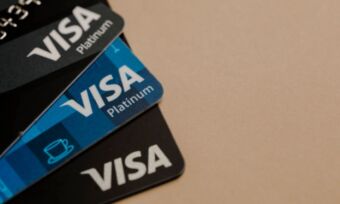I can’t pay my credit card bill: What can I do?

What steps can you take if you can’t pay your credit card bill?
If you’re experiencing financial hardship and can’t pay your credit card bill, there are steps you can take to help get your debt under control. Canstar spoke with Sarah Brown-Shaw, a financial counsellor from the National Debt Helpline, about what you can do.
1. Contact your credit card provider
When you call your credit provider to request a financial hardship arrangement, it has to consider your request under the Consumer Credit Protection codes. While there’s no hard and fast rules, your provider will usually be able to make some changes to your repayment obligations.
Ms Brown-Shaw recommends coming to your bank prepared with information on your financial situation, such as:
- A clear picture of your current and expected future income
- A budget outlining your essential expenses
- Details on other debts like a mortgage or car loan.
You also have a right to bring a financial counsellor along to your hardship meeting, who can help make your case and negotiate your new repayment obligations.
2. Make a plan to reduce your debt
If you have credit card debt, it’s important to make a plan to reduce it. For example, the National Debt Helpline says you can:
- Avoid using your credit card/s for more purchases, except in the case of emergencies
- Pay the debt with the highest interest rate or the smallest debt first
- Close each credit card account when you pay it off
- Reduce your credit card limit.
You may also want to consider a credit card balance transfer, which lets you consolidate your debts on a single card. These cards typically have a low interest rate for a period of time to help get your debt under control, and revert to a higher rate after this period.
If you have multiple sources of debt, another option is a debt consolidation loan to pay off your existing debts. However, it’s important to weigh up the potential risks. For example, you will need to make sure that the new loan is cheaper than your current loans and that you can keep up with the repayments.
3. Get help if you need it
If you are feeling overwhelmed by credit card debt, contact a financial counsellor as soon as possible.
You can get free financial counselling through some community organisations, community legal centres and government agencies. You can also speak to a financial counsellor for free by calling the National Debt Helpline on 1800 007 007.
What happens if you don’t pay your credit card bill?
If you can’t pay your credit card bill and you don’t have a hardship arrangement in place, your lender will charge you a late payment fee, which you may need to pay interest on.
Your bank can also issue you with a default notice and eventually take legal action against you. This can have a negative impact on your credit score. If you have made a repayment arrangement with your bank, a default notice cannot be listed against you while you are keeping with the arrangement.


0.00% p.a. interest rate on balance transfers for 24 mths. Rate reverts to 12.99% p.a. Balance transfer fee of 3% applies. Offer available until further notice. See provider website for full details. Terms and conditions apply.
 Travel insurance
Travel insurance
Try our Credit Cards comparison tool to instantly compare Canstar expert rated options.





